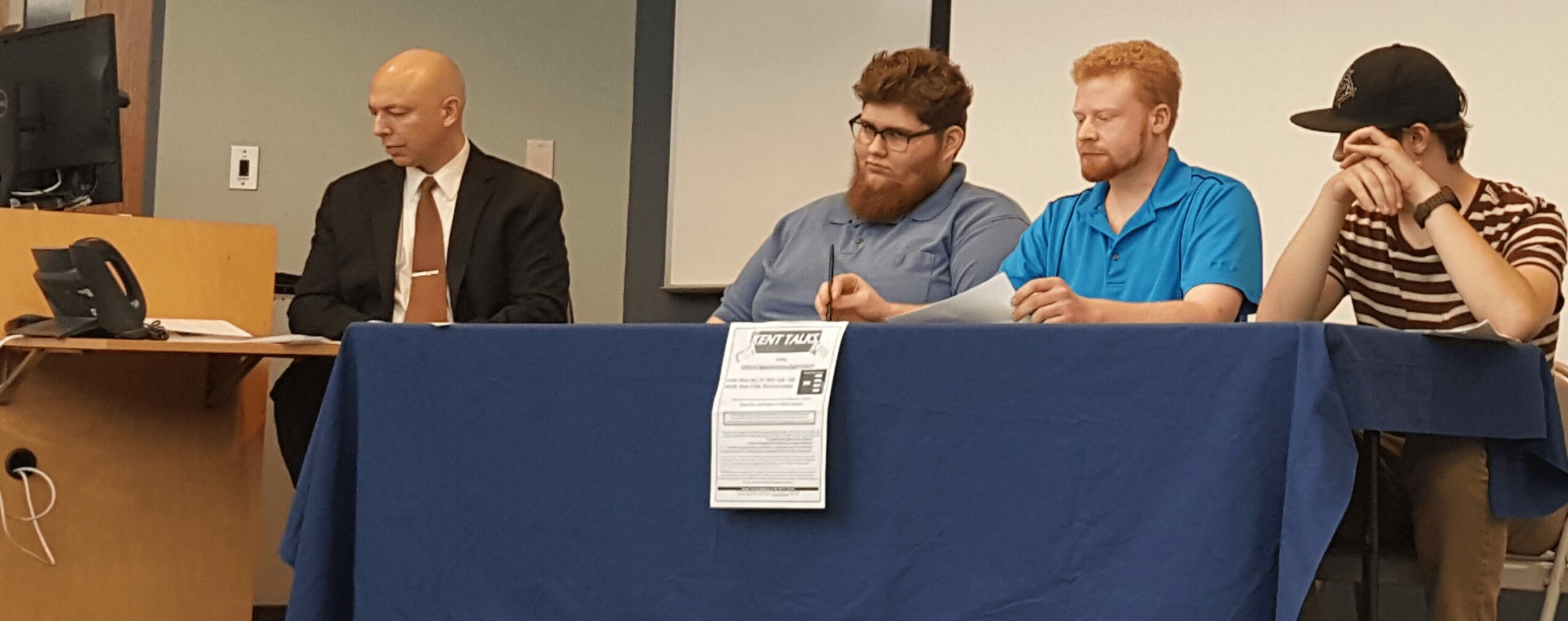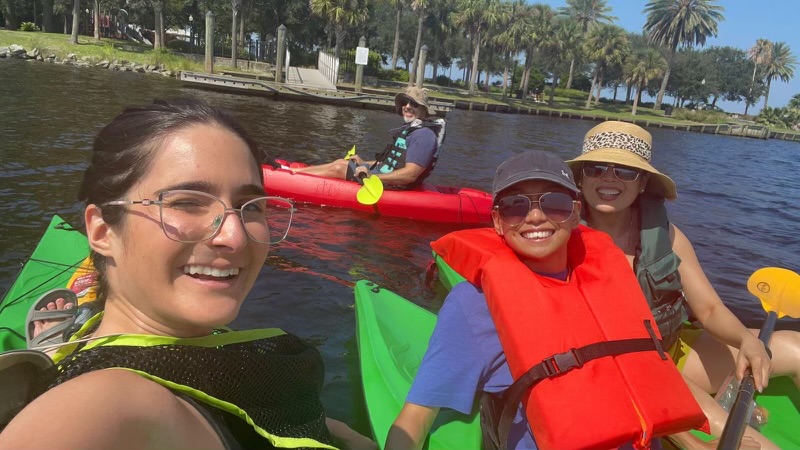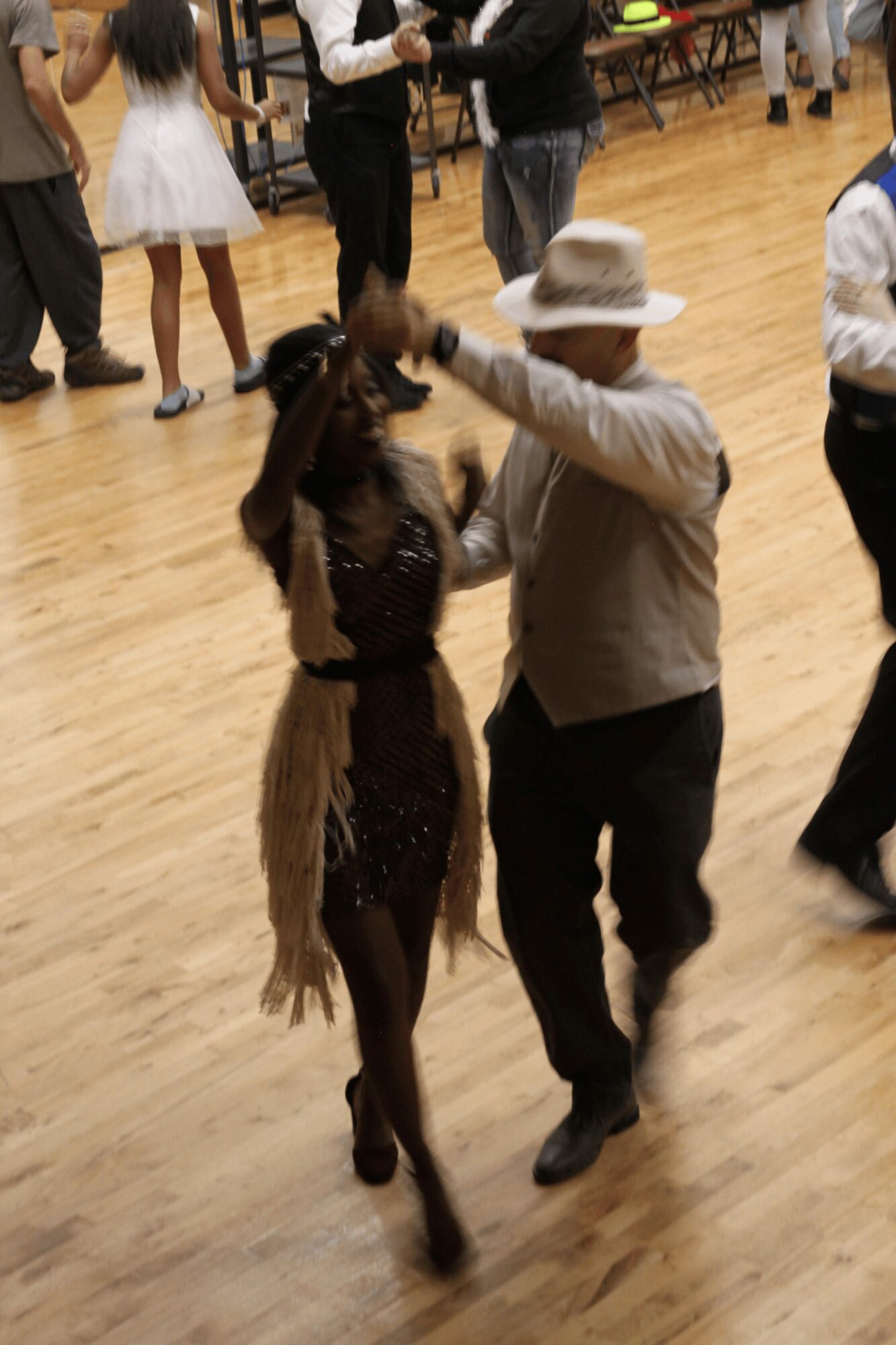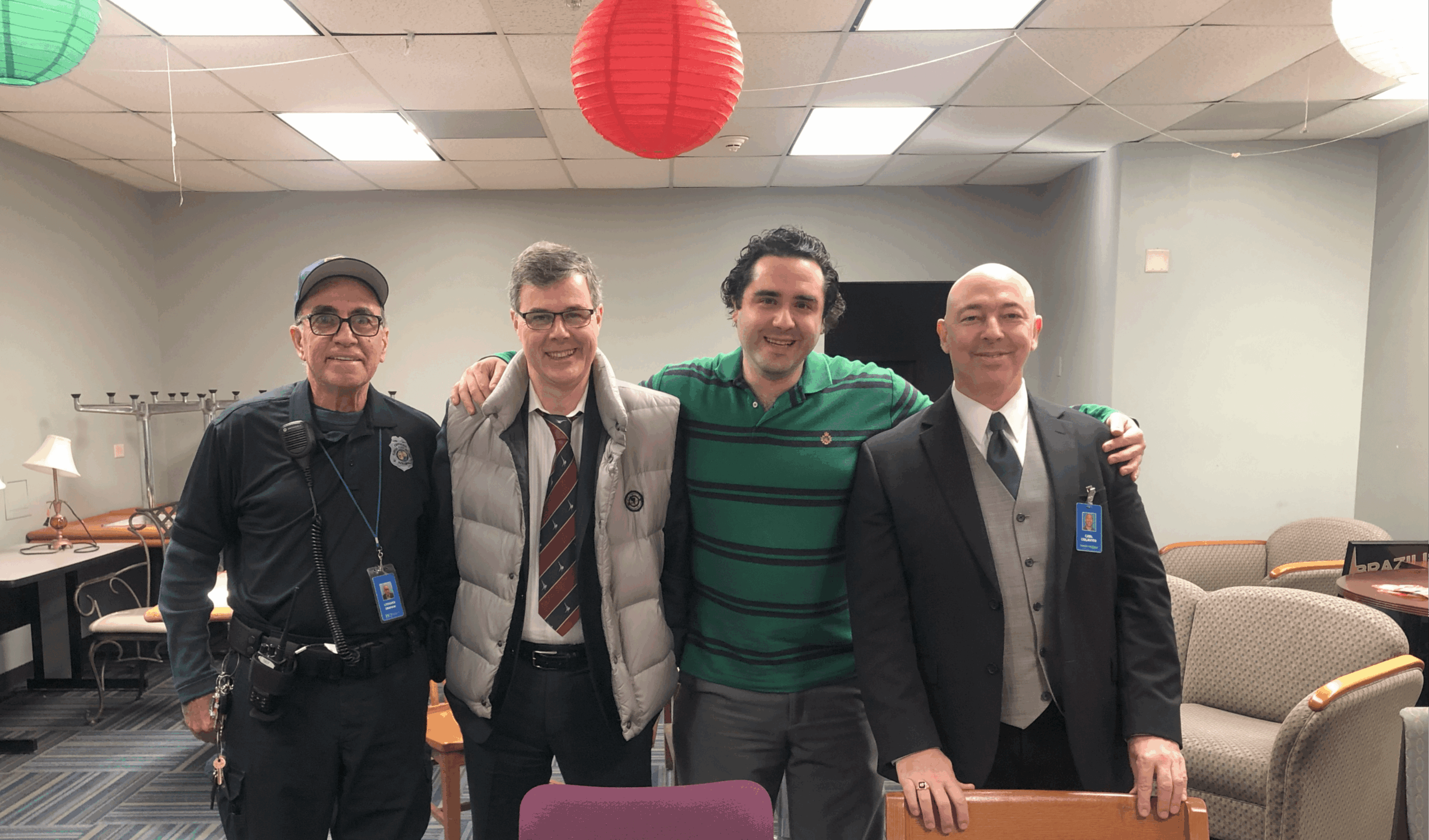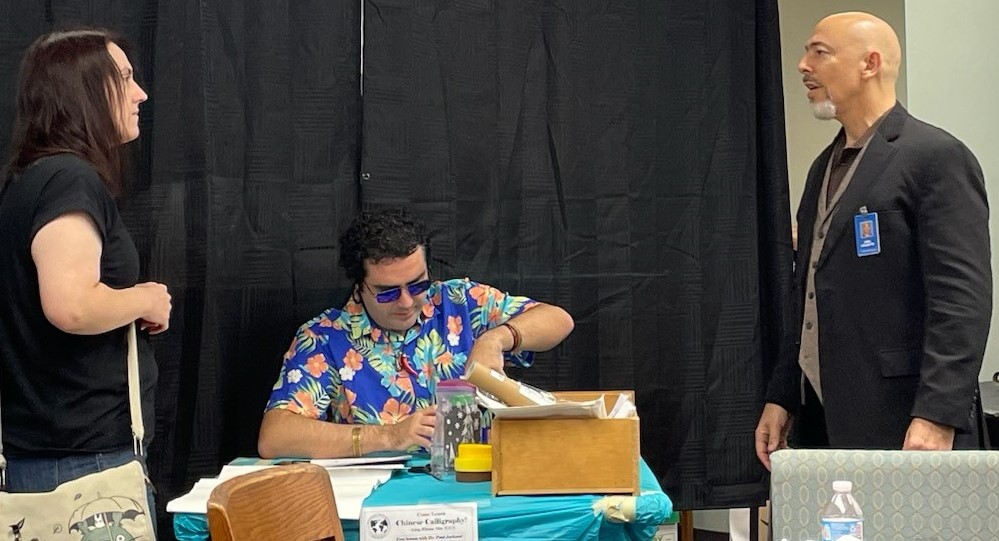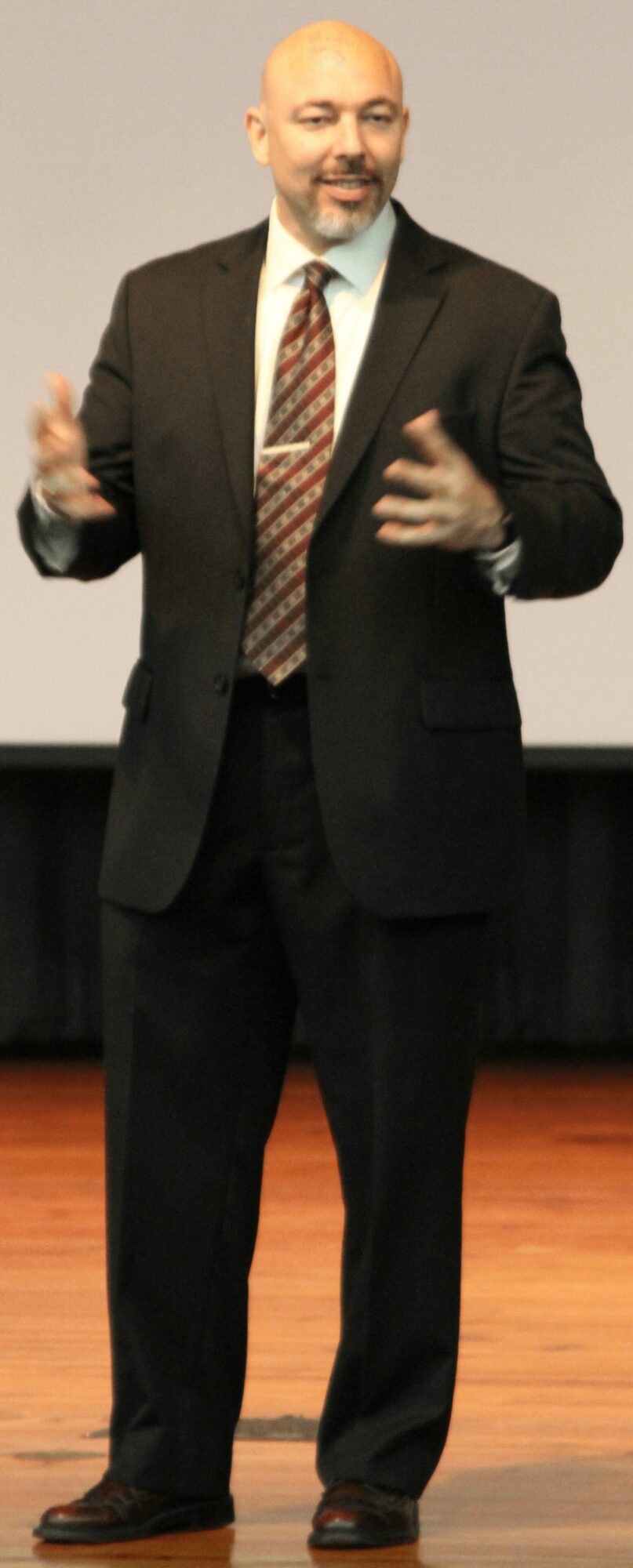

Today we’d like to introduce you to Carl Colavito
Hi Carl, can you start by introducing yourself? We’d love to learn more about how you got to where you are today?
Today I am a professor at Florida State College at Jacksonville where I teach Political Science and Philosophy courses. I had advised a Philosophy club and a Politics and Rational Discourse (PaRDi) club for over a decade. I am also the founder of a culture center which has turned out to be influential and meaningful for students, colleagues, and staff alike. How did we come to start this center? I am glad you asked because I love telling this part of the story!
The Philosophy club was already very active, meeting a couple of hours a week for in depth discussions of immigration, the nature of the mind, identity, what is art, etc. We put on panel discussions such as “What is the Effect of Anonymity on the Internet?”; Socratic Dialogues such as “What is Love?”; and we always accepted invitations for specialized topics such as “Has Feminism Reached Its Goal?” or “Free Speech And The Case Of Skokie.” We also put on dances. You heard that right! We did months of research and had discussions on topics such as the interconnectedness of the world and the role of foreign policy concerning oil, which we followed with a 1970s dance. We made Pet Rocks of the figures of the 70s, from Anwar Sadat to Darth Vader. For another event we discussed the Federal Government’s authority to enforce Prohibition, followed by a 1920s Dance where we created a speakeasy and gave away hand made headbands. It was at one of our preparation meetings for this dance that a student began to read a can of grape leaves. We knew she spoke Albanian in addition to English, but the language on the can was Greek. “How can you read that?” I asked. She said her friend was Greek and the two of them exchanged informal lessons over time. I had already been thinking about the wealth of cultures, intelligence, experiences, and views present in our club membership, hoping we could share our successful and productive interactions from a diverse group, even on sensitive topics, with our whole community. But this moment made me realize that yes, each of our community members has much to offer, but we had to get them together. So I spent a year or so researching demographics and culture centers at schools like ours. Then I pitched the idea, thankfully to a receptive administration, of a peer-to-peer center where volunteers shared with each other their cultures and languages. Several key players supported the idea, the students were extremely enthusiastic, and voila! A culture center was born!
That was seven years ago and we grew a great deal, from pot-luck events and thrown together Language Tables, to really an impressive output from our volunteers. To date we have Poetry ‘n’ Jazz, Myths ‘n’ Legends, Cultural Game Days, Cultural Karaoke, Mini-movies in numerous languages (the last theme was 3-5 minute horror movies called Screamatorium), Worldly Nights, Folktales storytelling in numerous languages, Chinese Calligraphy, and so much more, including our signature event “A Night in …” with our next one entitled “A Night In Krong Siem Reap.” We had already done nights in Paris, Tokyo, Venice, Mexico City, and Tangier. Each event had faux money of the country, menus in the culture’s language, songs and dances, and many, many experiences specific to that culture. The goal is immersion and for three plus hours we surround attendees with as much as we can.
Perhaps the most noteworthy part of our center is the volunteers who put in an incredible number of hours and effort, insights and imagination, into creating the events that hundreds find meaningful. We often laugh together, and many times a few go off to a corner and discuss something serious in their lives. We truly feed off each other and all are better for it.
So in spite of the run-of-the-mill troubles and tribulations that plague any organization dealing with bureaucracy and shifting hierarchies, we are today still working hard together to create memorable events for our attendees, and providing inspiration, skills, and at times solace, for all who pass through our doors. Professors work alongside students, staff pop in to help with this or that, and sometimes just to sing a song! Students know they are always welcome, which I surmise is why we often hear the same sentence, “Meet you at the center later!” It is always spoken with a smile in anticipation of what lies ahead.
I’m sure it wasn’t obstacle-free, but would you say the journey has been fairly smooth so far?
While I do like to complain … who doesn’t … I am built in a way that re-sets me to my energetic and hopeful mode after dealing with obstacles. There is therapeutic value in talking about struggles, and lord knows the folks I go to have heard a lot from me. But I truly think the only reason to discuss them, beyond the therapeutic value in getting another to hear you out, is to resolve the issues and prevent them from plaguing you or others in the future. In that vein, I will briefly say that our struggles have not been in enthusiasm, vision, effort, or desire. Most have been bureaucratic. I can envision many readers nodding at this “revelation.” Specifically for us there is not really an administrative lane for our center so we often find ourselves adrift in a sea of priorities where we do not have a port. This is not to say we do not have supporters. Our immediate supervisors are fantastic in supporting the center, as are many individuals at the institution. But we are a grass roots, mostly student driven center which means most support is either ad hoc or cobbled together. Again, I am not complaining about the growth of the budget from zero to more than enough for our events. But because we do not fit in anyone’s line-up, we remain a fairly large ship floating around the harbor with no real port we can call home. We have professors who volunteer a tremendous amount of talent, hours, and effort. There should be some systemic process for recognizing and remunerating them. We have students who volunteer but not for required volunteer hours, which I actually discourage. We want people there who want to be there. For these students there is no real recognition or way to acknowledge their contributions. While I completely understand that a grass roots endeavor has no right to expect or certainly not compel support from an administration that did not plan for it, I have a sense that the vision and efforts of those who created and continue to build the center ought justly be recognized as the contribution to the community that it is.
Can you tell our readers more about what you do and what you think sets you apart from others?
My “work” is in helping people get to know all of who they are so they can develop their faculties, recognize their value, and see humanity in others. I’ve done this through my advising clubs, dealing one on one with people as they reach out to me, and in interactions at work or in social situations. I specialize in a Socratic form of communication where I find out where people are through sincerely caring about them and sharing life stories with them, and asking questions so they get in the habit of asking themselves questions. I get a ton out of this (people are really cool!) but also people tell me how I have changed them, empowered them, and made them see more of the world. I reply that I can’t change them but I am always happy to share their journey for however brief a period. They do the rest. I suppose I am known for making people feel comfortable enough to be all or more of themselves. No one is perfect, but in our striving to be our best selves there is honor and joy. I think people appreciate this about life once they recognize it. I am happy to be a part of sparking them to develop their newfound faculty of apprehension. I will tell you what I am most proud of through recounting a brief story. As part of our lead up to our 1920s dance, I led a handful of dance lessons for our club members (Thank you mom for inspiring me to take ballroom dance lessons!). At the event itself I witnessed all of our members coax the shy attendees out of their shells, taking them to the dance floor to learn the steps they had recently been taught. When I first saw this happen I actually teared up. I am very proud of them and I am happy I took the time with them to make them comfortable to just live! I suppose this is also what I am know for. Many years ago I was going through a practice run with students a week before they were to present papers at a conference. One tool I used was a game called “Who Would Win?” where each of two people pick a character and an activity and then each gets some time to argue why their character would win. One student was visibly bashful and reluctant to participate. I left her alone initially but then I did what I do- I smiled, made some comments to make everyone relaxed, and eventually got her to volunteer to play the game. Her professor took me aside later and told me she never saw anyone who could make people feel comfortable and participate they way I did. She added that this student, though quite bright, had for years remained quiet and too shy to participate in public … until that afternoon. Aside from making people comfortable, I am a big believer in rational discourse since I think it is the best method for alleviating human suffering and also for just making progress in just about any field. People argue poorly all the time but with rational discourse, if done right, everybody wins!
Are there any apps, books, podcasts, blogs or other resources you think our readers should check out?
I read many, many books because there is a lot I don’t know and I do not like not knowing. I also like to know what other minds think about things. Possibly the most influential books in my life- the ones from which I draw lessons- are Plato’s Republic, Boethius’ Consolation of Philosophy, and Emerson’s essay on Self-Reliance. I re-read these for inspiration or clarity as needed. Mostly I just read everything I can about a subject when I want to understand something. My last book was on Rational Discourse and a couple of books that I recommend (besides that one … smirk) is Thomas Sowell’s A Conflict of Visions and Paulo Freire’s Pedagogy of the Oppressed. Also, almost any of Christopher Phillips’ books on Socratic dialogue, as well as an old book by Dale Carnegie called How to Win Friends and Influence People. A recent site with podcasts I came across that is interesting is infinitediscoveries.org.
Contact Info:
- Website: https://carlncolavito.com
- Facebook: https://www.facebook.com/groups/561847537558894/
